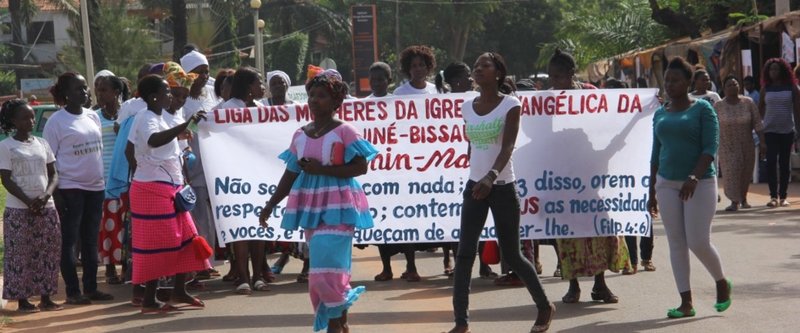Guinea-Bissau, one of the world’s poorest nations, has been plagued by chronic political instability since gaining independence in 1974. The international community including the United Nations is providing various forms of assistance aimed at helping the West African country build stable, democratic institutions and achieve greater economic prosperity.
The Department of Political and Peacebuilding Affairs (DPPA) provides support and strategic advice to the United Nations Integrated Peacebuilding Office for Guinea-Bissau (UNIOGBIS), a special political mission first established in 1999 following a two-year civil war in the country. The Mission is headed by the Secretary-General’s Representative for Guinea-Bissau, Rosine Sori-Coulibaly. The Security Council has extended the presence of UNIOGBIS over the years amid continued fragility in the country, whose problems have been exacerbated in recent years by a protracted political and institutional impasse characterized by the paralysis of the National Assembly and the absence of a State budget and programme of the Government.
According to Security Council Resolution 2404 (2018), which defines the mandate of UNIOGBIS, the key political activities of the mission are to: (a) Support the full implementation of the Conakry Agreement and the ECOWAS Roadmap, and facilitate an inclusive political dialogue and national reconciliation process, the strengthening of democratic governance, particularly with regards to the implementation of necessary urgent reforms; (b) Support, through good offices the electoral process to ensure inclusive, free and credible legislative elections in 2018 within the legally mandated time frame; (c) Provide support, including by technical assistance, to national authorities in expediting and completing the review of Guinea-Bissau’s Constitution.
Operative paragraph 4 of the same resolution affirms that in addition to the abovementioned priorities, UNIOGBIS and the Special Representative will continue to assist, coordinate and lead international efforts in several areas, including in providing support to the Government of Guinea-Bissau in strengthening democratic institutions and enhancing the capacity of state organs to function effectively and constitutionally; to ensure lasting peace and stability in Guinea Bissau.
In parallel with the good offices of the SRSG in support of the implementation of the Conakry Agreement, UNIOGBIS is working with entities beyond the purview of the Government and State structures to facilitate an inclusive political dialogue and national reconciliation process. UNIOGBIS is providing technical support in the reconfiguration of the former Women’s Facilitation Group, which played an important role in resuming dialogue among political actors in the first semester of 2017.
UNIOGBIS as an integrated office works closely with the UN Resident Coordinator (Deputy SRSG) and the UNCT to strengthen UN system-wide synergies and to mobilize international financial assistance. The Office also works to enhance cooperation between the major international partners working for progress in Guinea-Bissau, especially in the format of the Guinea-Bissau P5 group namely the United Nations, the African Union (AU), the European Union (AU), the Economic Community of West African States (ECOWAS), and the Community of Portuguese-speaking Countries (CPLP), among other important bilateral partners and donors.
In 2007, Guinea-Bissau was placed on the agenda of the United Nations Peacebuilding Commission (PBC), a step which has increased the international community’s attention to the country and its needs. A year later, the Peacebuilding Commission and the Government of Guinea-Bissau adopted a Strategic Framework for Peacebuilding in the country. The Secretary General declared Guinea-Bissau eligible to receive support from the UN Peacebuilding Fund in March 2008.
The Mission is currently implementing six PBF Projects funded under the IRD facility worth 7.8 mln USD in total, in the following areas: Support to political dialogue and national reconciliation in Guinea-Bissau ; Boosting the media sector for greater Peace and Stability in Guinea-Bissau; Strengthening Public Confidence in the Justice System; Supporting political and institutional stabilization of the Justice sector for peace consolidation in Guinea-Bissau ; Supporting Women's and Youth Political Participation for Peace and Development in Guinea-Bissau; and Mobilizing rural Youth and adolescents to serve as peacebuilding leaders.


